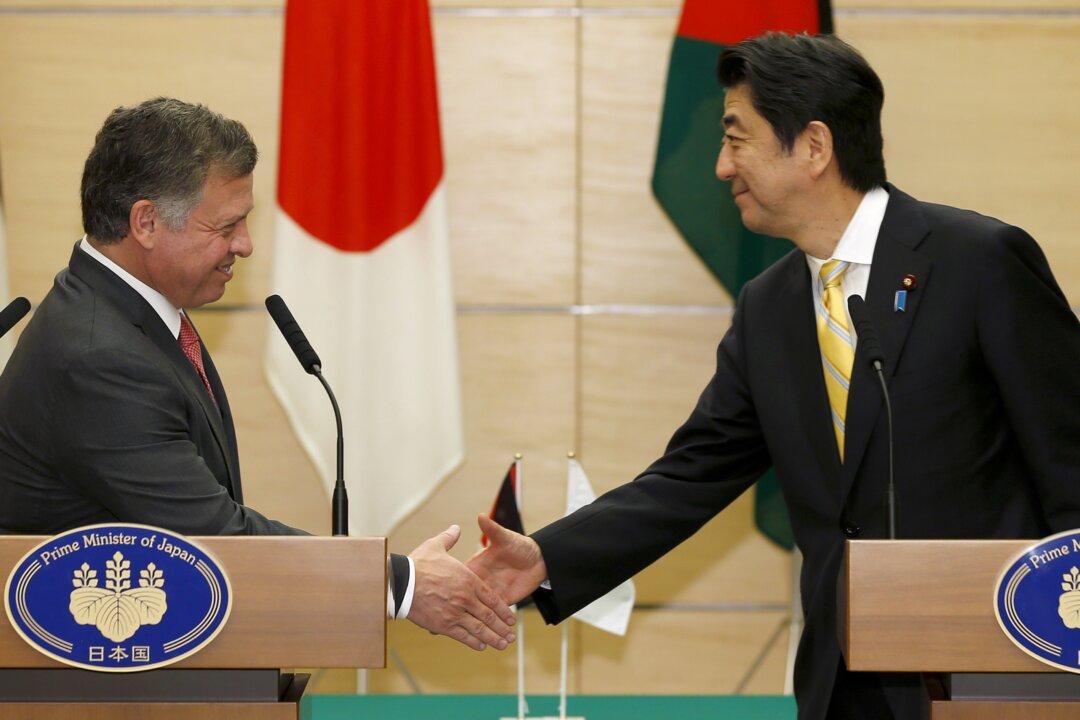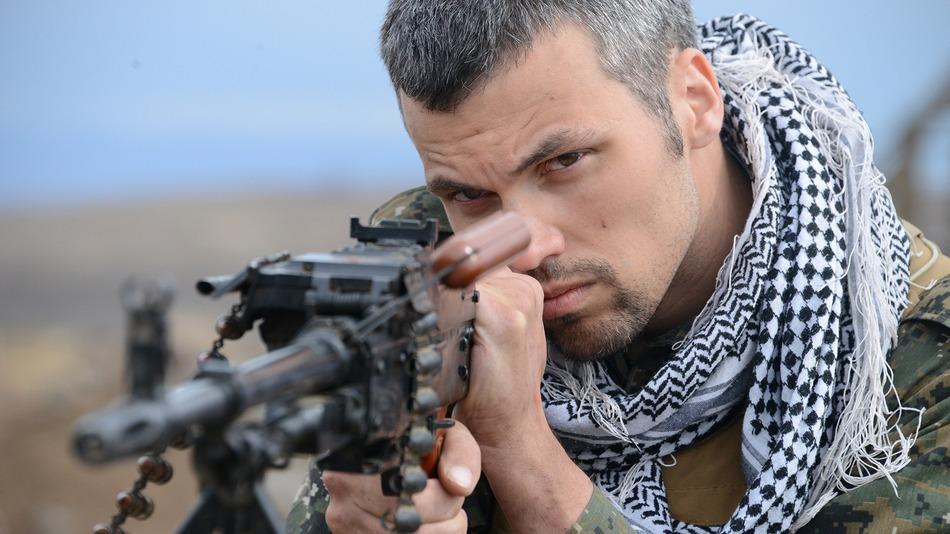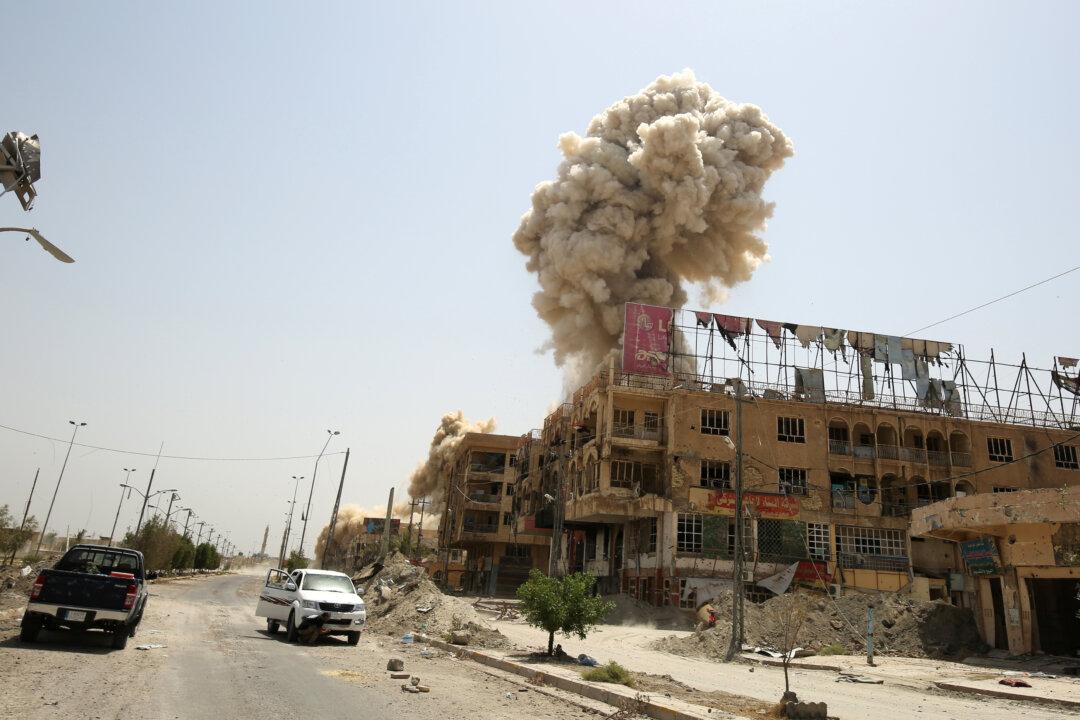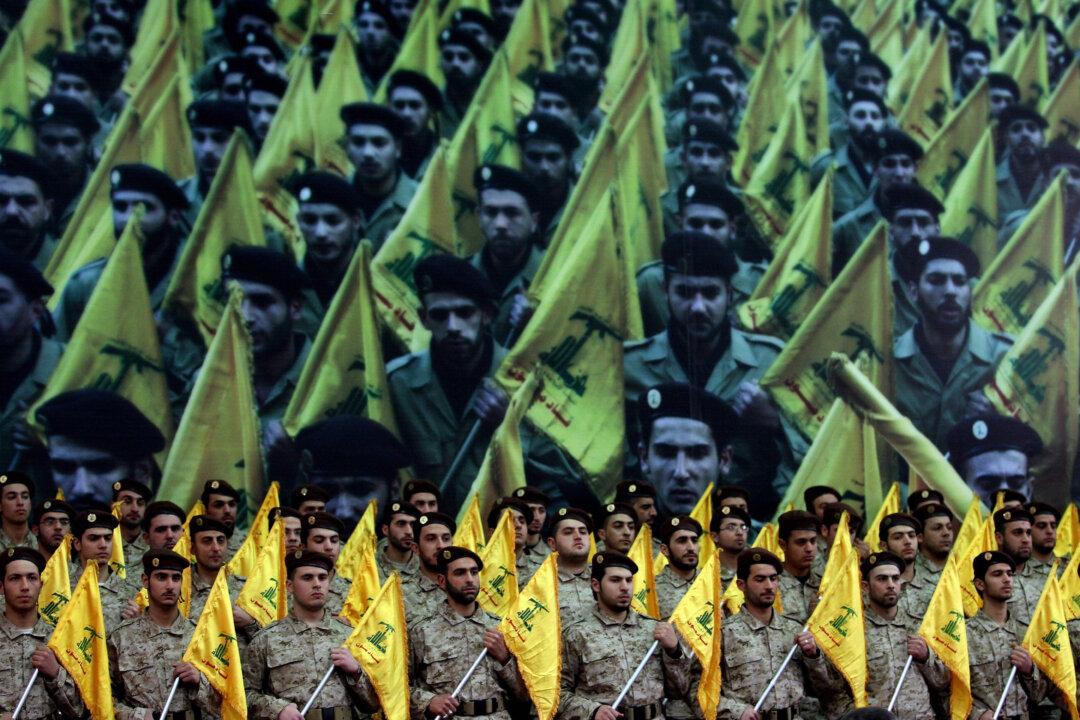The longstanding relationship between Jordan and Japan is being strained by threats from the Islamic State group that two hostages will be murdered in less than 24 hours. Japanese national Kenji Goto, a freelance journalist, and Jordanian pilot 1st Lt. Mu'ath al-Kaseasbeh are both being held by the extremist group.
An online message on Tuesday believed to be from the Islamic State group said the hostages have less than “24 hours to live.” The group is seeking to trade Goto for the release of Sajida al-Rishawi, an Iraqi woman sentenced to death in Jordan for involvement in a 2005 terror attack that left 60 people dead.
Japanese and Jordanian government officials are holding emergency meetings independently of one another, and have also exchanged a series of public messages imploring each other for assistance to secure the release of the both men.
Japan’s Prime Minister Shinzo Abe has been in Jordan and the region over the past few days, during which time another Japanese citizen held by the Islamic State group—Haruna Yukawa—was murdered. A photo of decapitated body that is believed to be Yukawa was released on Saturday. Abe has vowed not to let the same fate befall Goto.
Abe has stated clearly that Japan won’t negotiate.
“The Government of Japan will never give in to terrorism,” said Abe in a statement on the Ministry of Foreign Affairs website.
Jordan has leaned more toward an Arab state approach, though. In a meeting with a delegation of representatives from the Arab world and the International Relations Council on Monday, Jordan’s King Abdullah II ibn al-Hussein said his country wants to unify Arab and Muslim efforts “in the fight against extremism.”
[aolvideo src=“http://pshared.5min.com/Scripts/PlayerSeed.js?sid=1759&width=480&height=350&playList=518620716&responsive=false&playerActions=16559”]
The differing approaches haven’t stopped Japan from imploring Jordan for help. Japan’s Chief Cabinet Secretary Yoshihide Suga told reporters on Tuesday that they have asked for “collaboration” from the Jordanian government for Goto’s release.
“...[W]e are continuing as before to request the cooperation of the Jordanian government to work toward the immediate release of Mr. Goto,” said Japanese government spokesman Yasuhide Suga.
Japan and Jordan formalized diplomatic relations in 1954, and have since maintained a steady stream of high-level diplomatic visits between the two countries. Jordan’s King Abdullah has visited Japan 10 times and members of the Japanese royal family have been to Jordan six times since 1976.
It’s been made clear that Japan considers Jordan’s role in the ongoing peace process in the Middle East a lynchpin in regional diplomatic success.
Jordan and Japan also maintain a healthy trade relationship, with more than $232 million in back and forth trade annually. The big financial exchange exists in the form of direct aid and project investments, though.
Japan gives Jordan aid in the form of loans, grants, and technical cooperation to the tune almost $2.7 billion.
The Associated Press contributed to this report.




